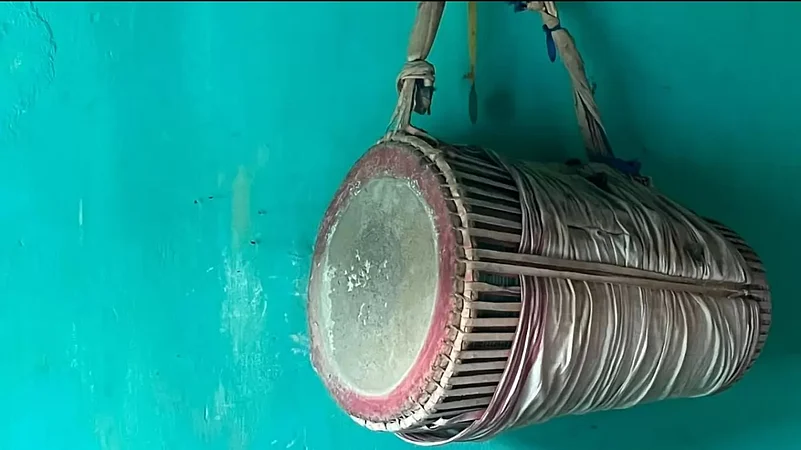In 1990, the SAIL extended its mining activities and subleased the excavation work to an Odisha based private mining company, the ORS India Ltd, a unit of the Adhunik group, who was the ones carrying out the mining activities near Dubil village. Interestingly, this company did not acquire the land from the villagers, even though the Adivasis lost their agricultural land due to its activities. Since these mining activities are being carried out at the top of the hill above the village, the mining waste descends directly onto the paddy fields during the rainy season. This has been happening for the last two decades.
Advertisement
Consequently, nearly 100 acres of fertile agricultural land has turned barren in the last two decades, without the villagers receiving any compensation. The company claims that since it did not acquire the land from the villagers, it has no obligation to compensate the land owners. This is how the ORS India Ltd tries to disown responsibility. The villagers did not just lose 100 acres of fertile land; they also lost a stream, ‘Dolbati Jharna’, which was their lifeline. The mining dust, red mud and red water have had hugely detrimental impacts on the health and livelihood system of these villagers. A few of them also suffer from lung disease.
Advertisement
Since they had lost their major source of livelihood, inhabitants of Dubil and neighbouring communities organised a meeting, and decided to fight for their rights. In June 2011, they went to the company’s office to demand jobs, and staged a protest there. As a result, the company’s General Manager, Guchait Iqubal, filed a case against six key villagers – Ramlal Champia, Sukhram Champia, Mohan Hansada, Ramkishan Tudu, Budhram Bading and Ram Hansada, alleging that they were holding the company to ransom. The alleged accused claim that on the basis of this complaint, the police arrested them and locked them up in jail for 13 days. Indeed, the police stations are seemingly always proactive in the Saranda region whenever they are asked to take any legal or illegal action to protect the interest of mining companies.
Nearly 50 villagers from Dubil have been working in Chiria Mines as casual mining labour since 1991, but none of them were regularised. The company’s unfair rules allow regularisation only after someone has worked as a casual labour for three years in a row, yet these villagers were not regularised even after working as casual labourer for a decade. Thus, villagers who lost their agricultural livelihoods are forced to become daily wage labourers, and it is only outsiders, mostly non-Adivasis, who can prosper through mining.
A union of the local Adivasis’ the ‘Saranda Unemployed Union’ alleges that the SAIL Management provides employment to the outsiders and neglects the affected families. The Union claims that 15 people mostly from West Bengal were employed secretly by the SAIL Management in May 2015. The Union protested against the SAIL Management, the local MLAs also raised the issue with the Chief Minister of Jharkhand, who assured them to look after the matter.
Advertisement
This is how mining is a curse for Adivasis and a blessing for other people. Jairam Ramesh, as Union Minister, publicly acknowledged this. He said, “Unfortunately the track record of mining operations was neither environmentally sustainable nor socially beneficial be it in public sector or private sector. Mining is not essentially a boom but a curse.”114 But the fact is, he was also not able to soothe the pain of Dubil’s Adivasis, except by implementing the usual symbolic-benefit programmes – Indira Awas,115 hand pumps, and of course, constructing a new road for the mining companies, etc. The fact is any way that these programmes failed. Half of the houses built under the Indira housing scheme have either collapsed or are useless, the hand pumps do not work, solar lamps and radios have disappeared and bicycles have broken down. The mining boom benefits only corporations, contractors and outsiders.
Advertisement
There is always the argument before the starting of a mining project that it would bring development to the region, but why is here no development in the Saranda region where more than a dozen mining companies have been operating for decades? Is the corporate model of development a total myth for the Adivasis? The most important question is: why are the Adivasis always made the victims of development projects? Instead of withering away from its constitutional responsibility, the Indian State must answer them.
(The piece has been excerpted from Mission Saranda by human rights activist, researcher and academic Gladson Dungdung)




















